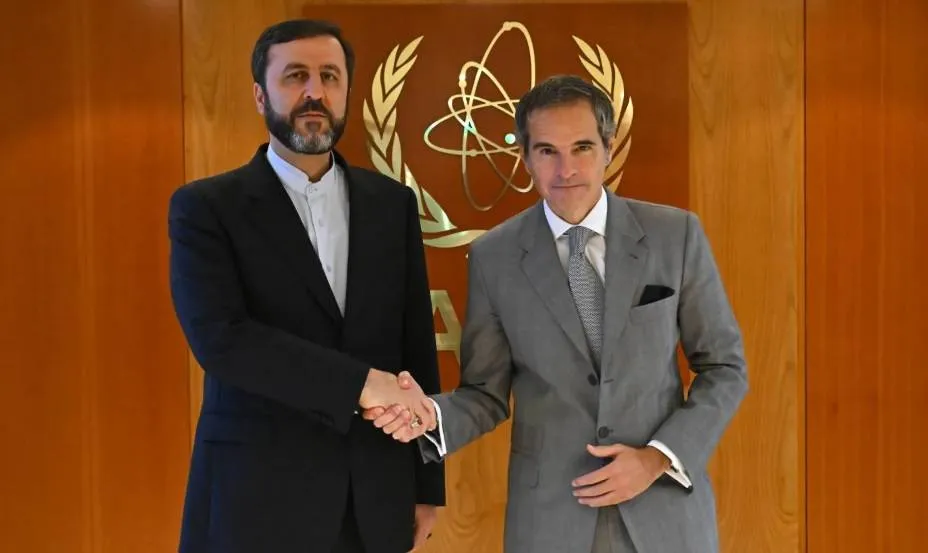Iran on Thursday criticized the statements of UN atomic agency chief Rafael Grossi, calling them “unprofessional” and “politically charged.”
Enriching uranium at 60% does not violate the Nuclear Non-Proliferation Treaty (NPT), Iran’s Deputy Foreign Minister Kazem Gharibabadi said.
At a press conference in Tokyo, Grossi had said Iran was “enriching (uranium) at 60%, so almost weapon level.”
“Iran is not still cooperating as we would like them to do, although my visit to Iran in November was constructive,” the IAEA chief said.
He added: “We want to make ourselves available, providing technically sound alternatives to eliminate the possibility that Iran develops a nuclear weapon, to prevent Iran, or to help Iran prove that they don’t want to develop a nuclear weapon.”
The IAEA chief also said the agency was prepared to help Iran prove it did not seek a bomb.
In a statement posted on X, Gharibabadi lambasted Grossi’s remarks as “unprofessional and totally politically charged”, insisting his country’s nuclear program was solely for peaceful purposes.
The Iranian official stressed that Grossi’s claim that 60% enrichment is ‘nearly weapons-grade’ is legally and technically unfounded.
“Under the NPT, there is no restriction on the level of uranium enrichment, and non-nuclear-weapon states are only obligated not to divert their programs toward weaponization,” he said.
Gharibabadi said if the IAEA chief is concerned about proliferation risks, he should also address the AUKUS security pact between Australia, the United Kingdom and the United States, and which involves the deployment of nuclear-powered submarines with weapons-grade fuel.
“Grossi has complained that Iran is not cooperating with the Agency as it ‘wishes’ or ‘prefers.’ Is the level of cooperation determined by the Agency’s preferences or inclinations?!” he said, adding that Iran has commitments, and it cooperates accordingly—specifically under the Comprehensive Safeguards Agreement.
“If Grossi wants Iran to accept additional verification measures beyond its legal obligations, he should also tell other parties that he ‘wants’ them to lift sanctions against Iran. Has he ever had the courage to make such a request to those imposing these unjust and illegal sanctions?!” Gharibabadi noted.
Iran’s deputy foreign minister also noted that while Grossi acknowledged a constructive visit to Iran in November, it is surprising that he did not address the counterproductive resolution pushed by three countries in the IAEA Board of Governors.
“Iran’s nuclear program remains peaceful, with no deviation from its legal obligations,” Gharibabadi affirmed, stressing that Grossi’s remarks about Iran’s “need to prevent” and “prove the absence of” nuclear weapon development are speculative and unprofessional.
